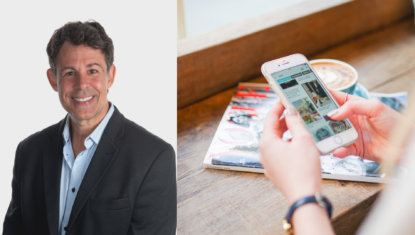19/06/2024
Ottawa, Ontario — Wednesday June 19, 2024

When it comes to social media use, less is more.
A new CHEO Research Institute study confirms that for youth with emotional distress, cutting back social media use in half can have a powerful impact on improving their mental health and wellbeing. This first-of-its-kind experimental study was recently published in Psychology of Popular Media and provides compelling evidence that objectively validates the impact of time spent using social media on youth mental health.
The study, led by Dr. Gary Goldfield, Senior Scientist at the CHEO Research Institute, and Chris Davis, a psychology professor at Carleton University addresses limitations from previous studies examining the impact of social media on youth mental health by experimentally investigating whether reducing objectively measured social media use on smartphones to one hour a day for three weeks would lead to a reduction in depression, anxiety, and fear of missing out (FoMO) in a large sample of youth with emotional distress.
The Goldfield study compared two groups of 17- to 25-year-old Canadian youth experiencing elevated symptoms of anxiety and/or depression, with one group reducing their social media use to one hour per day for three weeks, while the other group had no limitations on their social media use.
The reduced social media group showed reductions in symptoms of depression (20%), anxiety (26%), and FoMO (20%), and greater increases in sleep (45 minutes/day) compared to the group who used social media as usual. Youth with higher levels of emotional distress obtained greater psychological benefits from reduced social media.
“There is a lot of discussion about the negative impacts of social media on the mental health of young people, but very few studies have objectively shown a causal link between putting the phone away and improved mental well-being. Our study clearly demonstrates that when youth with emotional distress put their phones down for longer periods of time, they report improved mental well-being and better sleep. This is especially important amidst the all-time high rates of mental health challenges in youth, and as they head into the summer months with less structure and more free time,” said Dr. Goldfield, professor of Pediatrics, Psychology and Population Health, at the University of Ottawa.
The links between social media and mental health are increasingly clear, but what strategies best support children and youth who are increasingly reliant and addicted to their devices for fear of missing out requires more well-controlled experimental research. This is an ongoing focus of scientific investigation in Dr. Goldfield’s research program at CHEO.
References:
Davis, C. G., & Goldfield, G. S. (2024). Limiting social media use decreases depression, anxiety, and fear of missing out in youth with emotional distress: A randomized controlled trial. Psychology of Popular Media. Advance online publication. https://dx.doi.org/10.1037/ppm0000536
-30-
Media Contact:
Jennifer Ruff
Director of Communications
CHEO Research Institute
613-261-3979
[email protected]
